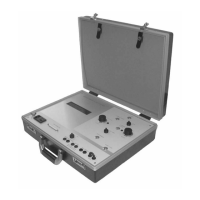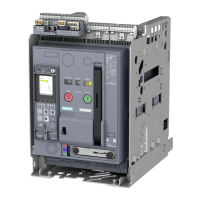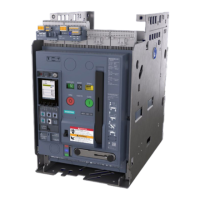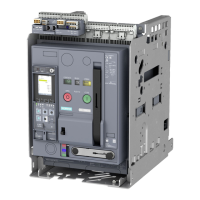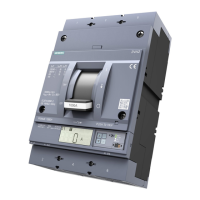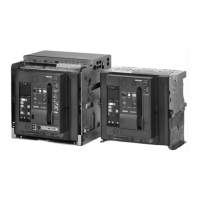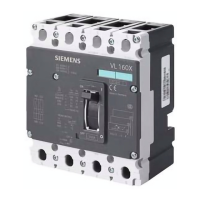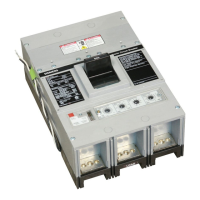See also
Use in IT systems (Page137)
4.1.7 Electromagnetic compatibility
The user of specic devices in an industrial environment can result in electromagnetic
interference in the electrical installation. The circuit breaker has been developed and tested for
electromagnetic compatibility in compliance with IEC 60947-2, Annexes J and F.
4.1.8 Installation in the switchboard
The switchboard version and the installation and ambient conditions can have a great inuence
on the ratings of the circuit breakers. The circuit breaker is also optimized for advantageous
switchboard integration and provides savings and reduced engineering in respect of
• Copper busbars
• Connection architecture
• Segregation and internal separation
• Mounting options
In the following mounting conditions (see Section "Power in the switchboard"), the most
important factors have been taken into account that can aect the power ratings of the
circuit breaker in the switchboard. These factors are:
• Switchboard type
• Degree of protection of the switchboard
• Separation type 3
• Number of devices that are connected to the same switchboard panel at the same time
• Type of connection and terminal
• Ambient temperature T
a
(IEC61439-1)
• Circuit breaker with guide frame
• Maximum permissible temperature at the terminal 120°C
Power in the switchboard
The following tables provide data about the power of the circuit breaker within the switchboard.
The data communicated are a summary of computer simulations and tests actually performed.
They are valid as guide values both for the xed-mounted breakers and the withdrawable
breakers and are not a substitute for an insulation test according to IEC 61439.
The switchboard used in the test has degree of protection IP31 and has the following design
and dimensions (gure shows the cross section of the side view):
Application planning
4.1Types of installation and installation locations
3VA27 molded case circuit breakers & 3WL10 air circuit breakers
138 Equipment Manual, 10/2023, L1V30499596002-03
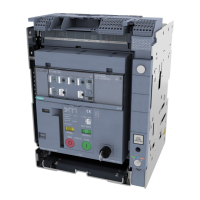
